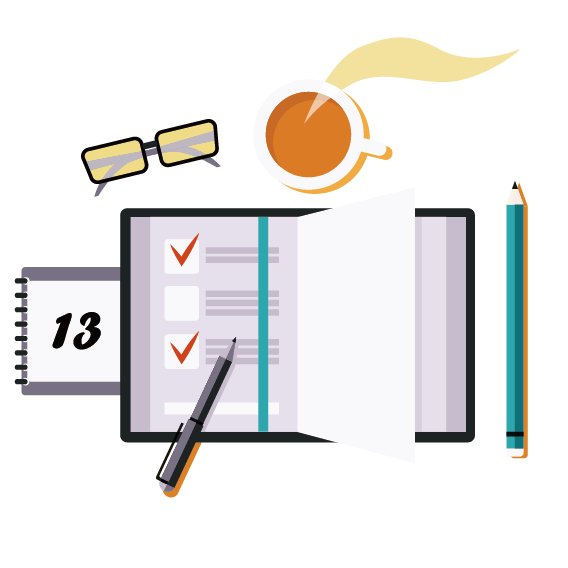Polyglot doesn’t have a formal definition with a set criteria for how many languages you need to know to qualify as one. However, general agreement on how to become a polyglot among linguists and language learners is that you should be able to speak several languages with fluency. Being a polyglot means you should be confident writing and speaking in these languages and they should have a degree of separation – speaking many dialects wouldn’t qualify you as a polyglot in most people’s eyes. Even then, though, the definition is a personal one.
Whilst multilingualism and polyglotism requires dedication, time and effort, there are ways you can assist your learning to accelerate your knowledge acquisition. Many find that a certain formula really helps them on how to become a polyglot and learn lots of languages omnidirectionally. These learners are also capable of tackling a few languages simultaneously, whilst others like to go through step-by-step per each language individually. So how to become a polyglot, you might ask.
21 Quick Tips How to Become a Polyglot
1. Learn one language at a time
Learning one language at a time is the best approach for the vast majority of people on how to become a polyglot. If you learn more than one at the same time then you may simply not be able to hold in all of the information and you’ll lose bits and pieces of each language. Focus on the easier or related languages and work up.
2. Attend language classes.
Language classes really are one of the best ways to learn and attending then frequently will help put your knowledge to the test in an organic face-to-face setting. You might surprised at whats available near you.
3. Download mobile apps for language of your choice.
Mobile apps cover many aspects of language learning. There are dictionaries, flash card systems, language games and unique platforms like Bilingua which put language learners into contact with each other so they can practice together.
4. Read the same book in multiple languages.
If you’re very familiar with a book, maybe Lord of the Rings, or Harry Potter, then try and read it in multiple languages. Not only can you refer to your native knowledge of what’s happening in the story line, you can also see how this compares between the various languages you’re learning.
 5. Set a schedule for practise time.
5. Set a schedule for practise time.
Practice is all about routine and the more strict you are with a regime the more likely you are to stick to it! If you set times for regular learning then after a while, you will stick to them naturally. This will form the backbone of your language learning.
6. Practise all languages as often as you can.
Practicing regularly is very important. Learning is all about frequency and repetition and the more you repeat knowledge, the better.
7. Find a language partner.
Finding someone to practice with is an amazing way to accelerate your learning. If you can find someone with equal or similar ambitions to learn languages then that’s even better.
8. Use your inactive time to practise.
We all sit twiddling our thumbs at some point but the fact is, we can convert this time into practical learning time easily. Train yourself to utilise those minutes for good. Prepare audio lessons for when you’re waiting for a bus, carry flashcards with you – get creative!
9. Join a language support group through social media on how to become a polyglot.
Social media contains many great communities for language learners. There are literally hundreds. Facebook and Google + are the best places to search.
10. Use the Laddering technique.
Laddering is when you place your known languages in a mental sequence or hierarchy. Your base language may be English, the second may be Italian and the third maybe Mandarin. If you wanted to translate a word into Chinese then instead of going directly to that, you instead translate to Italian and then to Chinese. This reinforces every language on the ladder and helps prevent confusion between languages.
11. Listen to music, watch movies or any media in the language you are learning.
Engaging in all forms of media in the multiple languages you’re learning is a great way to pick up phrases and slang. You’ll see both similarities and differences between the different languages you’re learning and can compare them to your native tongue. Movies, newspapers, music – they’re all good shouts and it’s great to collect media from all of your languages to use as and when you need.
12. Use the immersion technique when learning a new language.
Writing, speaking, listening and doing quirky things like changing your phone language between other languages are all quirky ways to immerse yourself in multiple languages.
13. Plan out the languages you want to learn and why.
Deciding for sure which languages you want to learn will prevent you from reaching a turning point where you don’t want to continue any longer. Scrutinise your choices until you’re certain.
14. Create a benchmark plan on when to start the next language.
Knowing when to move on is hard because you’ll have to start the next language before you’re entirely comfortable and fluent with the first.
15. Join a language exchange community.
It’s hard to stress quite how important practicing with the language learning community really is. The more you immerse yourself in other people’s learning experiences the better. You can bounce issues, tips and ideas off of each other.
16. Get a phrasebook.
Always keep phrase books on you. They can be quickly referenced at any time and will provide valuable insight into how common phrases differ between your languages.
17. Try the language shadowing technique to practise pronunciation.
In this technique, you listen to as much audio as possible in your target languages and then repeat to yourself exactly what you hear. By trying to repeat it at the original pace of the conversation, you’re shadowing and whispering along. This will help familiarise yourself with conversation in a foreign language.
18. Listen to language podcasts.
There is much language learning media out there, like language podcasts, which provide a near-infinite resource of various techniques and approaches to language learning.
19. Try memory techniques to help you remember words quickly.
Depending on how your memory functions, there are various methods available to enhance it via the use of visualisation or mnemonics. Do some research into how to enhance your memory – there’s tons of info out there which will help you learn multiple languages.
20. Be ready to make lots of silly mistakes!
Coping with mistakes is vital to any learning but for those aspiring to become polyglots, ready yourself for some chaos and confusion! It’s all part of it and the ways you approach solving these problems will aid your learning in the long term.
21. Be passionate and Have fun!
If your heart isn’t in learning lots of languages then consider it very carefully. It’s a big investment in time and the further you go, the more important it is to continue. Overall, it’s obviously tremendously rewarding and being a polyglot will be a real gift no matter what you do.



